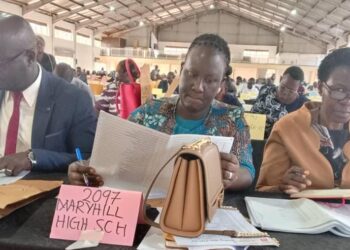OPINION
By Gilbert Akampa Kakurugu,
As Uganda’s third school term unfolds, classrooms across the country remain eerily quiet not because of holiday breaks, but because hundreds of Arts and Humanities teachers have downed their tools in protest. Their strike, now entering its fifth day, is a direct response to the government’s failure to honor her pledge made three years ago: to enhance their salaries in line with their Science counterparts.
In 2022, the government selectively increased salaries for Science teachers, leaving Arts educators behind despite having similar qualifications, workloads, and challenges. This move not only created a glaring pay disparity but also sent a troubling message that some teachers are more valuable than others. Such a policy risks dividing the teaching fraternity and undermining the spirit of unity and equity that should define our education system.
The silence from the Ministry of Education and Sports is deafening. While learners lose precious time on the school calendar, officials remain tight-lipped, offering no roadmap for resolution. The term will not be extended to compensate for lost time, meaning students especially those preparing for national exams will bear the brunt of this impasse.
Let’s be clear: this is not just a teachers’ issue. It’s a national concern. When educators are undervalued, the ripple effects touch every corner of society from the quality of education to the morale of future professionals. Teachers are the backbone of our development. Their children, like those of other civil servants, deserve access to quality education, healthcare, and dignified livelihoods.
It’s time for government to engage in meaningful dialogue with teacher representatives. A phased salary enhancement plan, rooted in fairness and sustainability, is not only possible it’s necessary. Threats to replace striking teachers have proven ineffective and only deepen mistrust.
Uganda must recognize that all educators whether teaching Physics or Literature play an indispensable role in shaping the minds of tomorrow. Equity in remuneration is not a privilege; it’s a right. Let us not allow silence and delay to erode the foundations of our education system.
The future of our children depends on the decisions we make today. Let’s choose fairness. Let’s choose unity. Let’s choose action.







































